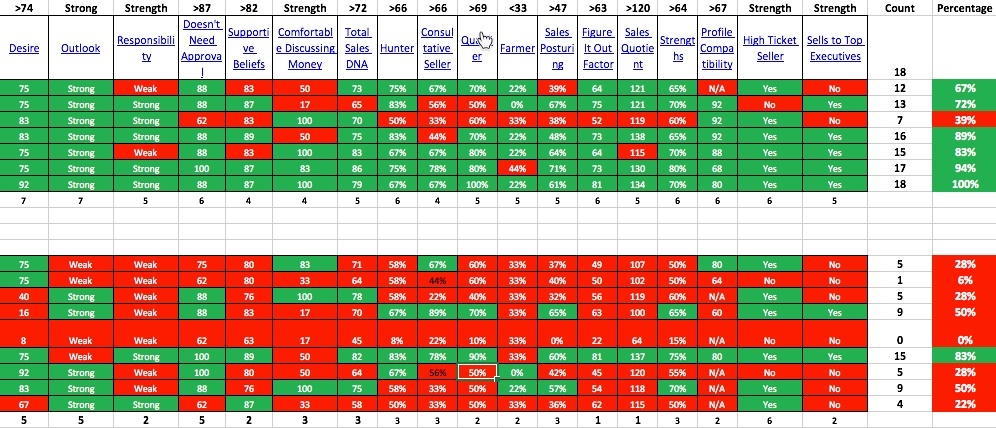sales hiring test
-
Is 28 Years Long Enough for a Sales Assessment Trial ?
- September 19, 2022
- Posted by: Dave Kurlan
- Category: Understanding the Sales Force

Isn’t 28 years long enough for us to prove ourselves?
Clearly OMG is not for everyone. Companies that sell at the lowest price, companies that are the brand leaders, and companies that have a transactional sale don’t need to hire good salespeople because their salespeople are order-takers. But what about everyone else?
After consistently proving its legendary predictive accuracy making it a no-brainer to use OMG, there are five possible reasons why companies didn’t use OMG to assess their sales candidates over the past 28 years:
-
The Science of Sales Selection vs. the Marketing of Modern Selling
- August 14, 2015
- Posted by: Dave Kurlan
- Category: Understanding the Sales Force

I started with more than 100 sales-specific findings and narrowed them down to the 18 findings and scores that clearly differentiated their tops from their bottoms. A mistake made by behavioral scientists and sellers of personality and behavioral styles assessments is that they only look at top performers and identify common traits. They fail to realize that the bottom performers have the same personality traits and behavioral styles as the top performers and none of those traits or styles are predictive of sales performance.
-
All-Time Top Kurlan Sales Article
- December 20, 2012
- Posted by: Dave Kurlan
- Category: Understanding the Sales Force
Whether you’re using a personality assessment, behavioral styles assessment, psychological assessment, or psychometric (describes all of the above) assessment, it’s the marketing that’s sales-specific, not the findings. Use them at your own risk.

